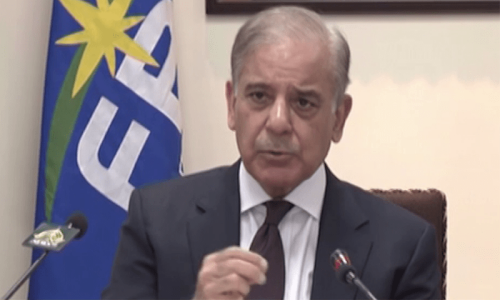KARACHI: As Pakistan has reached a Staff-Level Agreement (SLA) for $7 billion Extended Fund Facility with the IMF, the Pakistan Business Council (PBC) said the government should now take the formal sector into confidence by offering a roadmap on how and when their taxation burden will be alleviated.
The body said the government should provide relief by cutting back on public expenditure and broadening the tax net. The government should also share the progress on digitalising and restructuring the FBR.
The trust deficit between formal businesses and government is at its highest due to the lack of communication by the government in the lead-up to and following the budget announcement.
PBC Chief Executive Officer Ehsan Malik said the country’s economic managers should come to Karachi, listen to businesspersons and consider their concerns, including a level playing field with the informal sector.
He said the government must also acknowledge the role that the formal sector plays as unpaid tax collectors on behalf of an ineffective FBR.
Our weak negotiation position with the IMF may do little to shape the 24th programme in a more reform-centric and less front-loaded way, but it is worth trying. Otherwise, the result will not be different from the past, he said.
The FBR, in its current form, is incapable of broadening the tax base and its chairman admitted the fact on Friday in a meeting.
The IMF also realised that the only way to help balance the fiscal account is to put further burden on the already taxed sectors.
The global lender has recognised the inability of the government to walk the talk on cutting the government’s size and reigning in public expenditure, Mr Malik continued.
He said the IMF is also aware of this government’s inclination toward infrastructure projects, and surprisingly, it appears to tolerate that.
According to Mr Ehsan, it appeared that the IMF is primarily focused on the immediate challenge of dealing with Pakistan’s debt vulnerability.
He added that there are some good measures that the IMF has successfully imposed on the federal and provincial governments.
He identified the new tax on agriculture income as “the most important development”.
“What remains to be seen is whether [IMF] can prevail in revising the National Finance Award, as simply producing a provincial budget surplus is hardly a motivation for the provinces.”
The provinces need to take responsibility for the Benazir Income Support Programme (BISP), leakages in energy distribution, and a good share of the Public Sector Development Programme.
IMF also wants the government to resist new regulatory and tax-based incentives and phase out Special Economic Zones incentives, he added.
This would discourage investment in a country with a low investment-to-GDP ratio and now one of the highest tax rates in the world, he said.
Refraining from the expansion of generation capacity and guaranteed return projects is a welcoming condition, the PHC chief said, adding that IMF’s insistence on timely adjustment in energy tariffs detracts from fundamental reforms of the energy sector.
On a positive note, replacing cross-subsidies with targeted BISP support augurs well for an industry burdened with regionally uncompetitive energy costs, Mr Malik added.
Published in Dawn, July 14th, 2024















































Dear visitor, the comments section is undergoing an overhaul and will return soon.